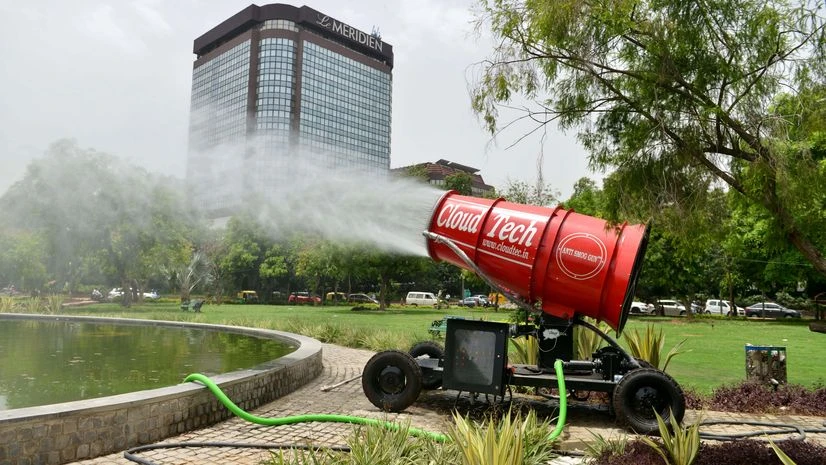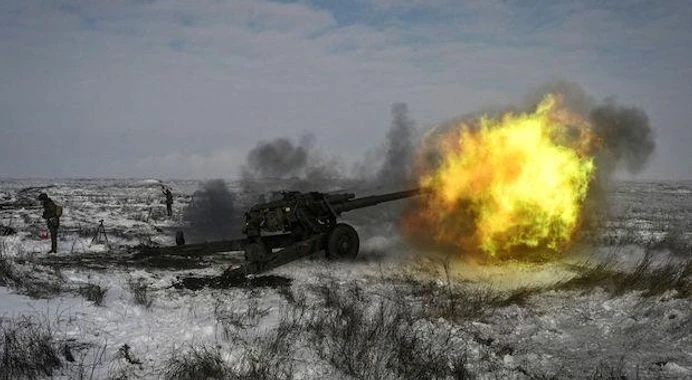Delhi air quality hits 'very poor' level: Govt measures, other key updates
The national capital's air quality was in the very poor category on Tuesday morning, the first time this season, with calm winds and low temperatures allowing accumulation of pollutants
)
An Indian made anti-smog gun, a device that sprays water into the air to reduce pollution, is placed at a roundabout to curb pollution levels, in New Delhi on Monday.
According to an analysis by the Council on Energy, Environment and Water, a Delhi-based think tank, transportation contributes the most -- 18 to 39 percent -- to Delhi's air pollution. Road dust is the second largest source of air pollution in the city (18 to 38 percent), followed by industries (2 to 29 percent), thermal power plants (3 to 11 percent) and construction (8 percent).
An increase in farm fires in Punjab, Haryana and neighbouring regions of Pakistan is also going to impact the air quality in Delhi-NCR. NASA's satellite imagery showed a large cluster of fires near Amritsar and Firozpur in Punjab and Patiala, Ambala and Kaithal in Haryana.
The 24-hour average AQI was 261 on Monday, the worst since February. It was 216 on Sunday and 221 on Saturday. An AQI between 0 and 50 is considered 'good', 51 and 100 'satisfactory', 101 and 200 'moderate', 201 and 300 'poor', 301 and 400 'very poor', and 401 and 500 'severe'.
With Delhi-NCR bracing for months of poor air quality, experts have warned that high levels of air pollution can aggravate the Covid-19 pandemic. Severe air pollution in Delhi is a year-round problem, which can be attributed to unfavourable meteorological conditions, farm fires in neighbouring regions and local sources of pollution. A green war room with a 10-member expert team has been set up at the Delhi Secretariat to monitor the steps being taken to deal with high levels of air pollution in winters.
The National Capital Region Transport Corporation (NCRTC) has been fined Rs 50 lakh for not taking dust-control measures at a construction site here, Delhi Environment Minister Gopal Rai said Sunday.The minister, who was on a visit to inspect demolition sites at Netaji Nagar and Kasturba Nagar, noticed uncovered mounds of dust at the NCRTC site near Vikas Sadan.
The environment department has also taken stern action against project proponents at large construction and demolition sites flouting dust control norms. The government will also start the spraying of Pusa bio-decomposer solution in non-basmati rice fields in the national capital, on Tuesday. The solution, experts say, can turn the stubble into manure in 15 to 20 days and therefore, can prevent stubble burning. Starting October 15, stricter measures to fight air pollution will also come into force in Delhi and its neighbourhood as part of the Graded Response Action Plan, which was first implemented in Delhi-NCR in 2017.
Also Read
Don't miss the most important news and views of the day. Get them on our Telegram channel
First Published: Oct 13 2020 | 2:10 PM IST


)